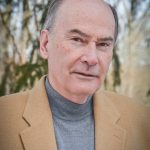[vc_row][vc_column width=”1/1″][mk_title_box color=”#17466a” highlight_color=”#000″ highlight_opacity=”0.01″ size=”24″ line_height=”34″ font_weight=”inherit” margin_top=”0″ margin_bottom=”18″ font_family=”none” align=”left”]Health Professional bringing spirituality to the addictions recovery process.[/mk_title_box][vc_column_text disable_pattern=”true” align=”left” margin_bottom=”0″]The inclusion of spirituality in addictions recovery began with the 12-steps program of Alcoholics Anonymous. Cofounded by Bill Wilson, the 12-steps’ spiritual orientation is based on Wilson’s own recovery from alcoholism that was associated with a spiritual experience. His correspondence with Carl Jung, who verified the importance of Wilson’s experience, empowered Wilson to make spirituality central to the 12 steps. Spirituality remains a source of misunderstanding between the scientific, empirically informed mental health community, and the 12-step recovery movement. This article offers an outline of spiritual development, based on neuroscience, which the professional can utilize in the spiritual aspect of a patient’s recovery.[/vc_column_text][mk_padding_divider size=”30″][vc_column_text disable_pattern=”true” align=”left” margin_bottom=”0″]As seen on Informa Healtcare[/vc_column_text][/vc_column][/vc_row]
8 Paths to Discovering Your Transpersonal Nature
Transpersonal simply means beyond the personality. People go beyond their normal personality patterns under many...





